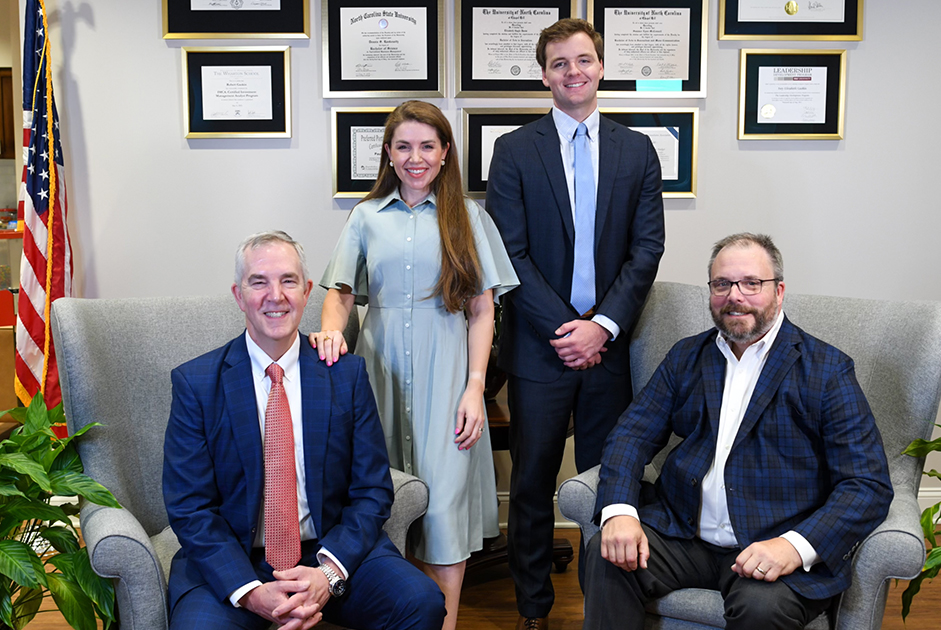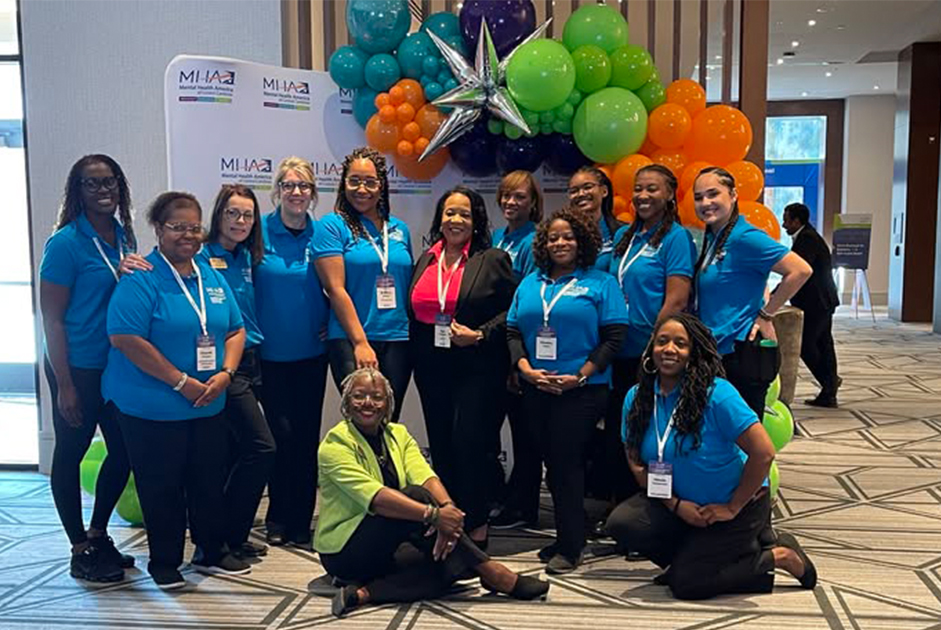Driving to and from Huntersville every day, my husband, Brett, passes the sign for the NC Powerball jackpot lottery. As of July 2024, it’s currently floating around $130 million.
In our own family meetings, I’ve shared research and trained Brett to understand that, with a diversified investment strategy, an investor might reasonably rely on 4% in income off of a portfolio for 30 years.1 He likes to dream out loud, “Wouldn’t it be nice to win a cash value of $50 million? That’s two million a year for a long time. Just think about all that we could do.” My response to him is almost always, “Oh, it would be amazing, but the novelty would wear off. What would you do every day? Would you stop performing surgery? What lessons would that teach our sons if their dad hung it all up at 40?” We will occasionally hear our clients ask this very question to their working spouse, “What in the world would you do if you retired early?”
According to the NC Lottery website, the chance of winning the NC Powerball jackpot is one in 292 million.2 The chance for the Baker household to win is zero, because we don’t buy lottery tickets; so my husband’s dream about financial freedom at 40 will be a simple thought experiment. Let’s explore.
The goal and challenge we face as financial advisors is to encourage our clients to strike a healthy balance between living their beautifully messy lives today and saving enough where work is a choice and no longer a financial obligation. From my experience as an advisor, the dream of financial freedom doesn’t require a lottery win, and it doesn’t require waiting until 65 either. Sure, a massive financial windfall seemingly makes all options possible, but what we gain (the sense of freedom) is attainable if we simply personalize what “freedom” means to us.

Financial freedom provides choice. It may mean choosing a job where you can work an efficient 30-hour work week to be present when your kids get home from school, to then return to a more full-time schedule and save as they age. For others, financial freedom means being debt free. Or maybe financial freedom is saving enough to take a month-long sabbatical at 53 to hike through Europe with family before the kids go to college. Financial freedom could be working until 77 because you’re healthy, it’s your name on the business and you like to join your grandchildren on sales calls. (I could see that happening here at Gaskin Asset Management one day.) Still, for many, financial freedom is a traditional retirement at the end of a productive career to pursue personal interests like fishing, gardening and writing.
You might be surprised to learn that “retirement” is a fairly new cultural norm.
In 1935, at the advent of social security, Roosevelt and his administration endeavored to provide economic security for the aged amidst depression-era devastation that swept the nation. Payments were set to begin at age 65, while average life expectancies were only 60-64. It was presumably a sustainable benefit. A lot has changed since 1935. Employer pensions and defined contribution retirement plans (like 401(k)s) improved an employee’s ability to retire from work and live out their final years enjoying desired activities. Today’s retirement is not five or 10 years; for many, it is 20 years or more, and the financial requirement needed for a comfortable retirement is significant. Our aging population continues to increase the pace of benefit payouts, making younger generations less optimistic about the future of social security. With the shrinking presence of company-sponsored pensions, the weight of retirement planning today is now primarily on the individual, and life in 2024 is so expensive that long term saving feels impossible.
I think back to my husband. Does retirement feel like such a lofty goal that he feels we’d need to win the lottery to be able to enjoy life while we work and to fund our future lifestyle? Further, is 30 years in retirement really the goal?
If financial freedom is our desired reality, some effort is required, and there are a few helpful ways to save.
It is difficult to imagine what may be required to successfully retire; but retirement can be one of the easier savings goals to work towards because of accounts specifically designed to grow assets for traditional retirement, decades in the future. Retirement plans (401(k)s or SIMPLE IRAs) enable employees to contribute on autopilot, often with an employer match, rewarding good savings behavior. These accounts continue to be the most attractive to long term savers because most provide tax benefits via tax deduction and tax deferred growth. These accounts are also successful at growing funds for the future because of the penalties associated with early withdrawal. Instead of waiting for employees to enroll and elect their own participation rate, more employers are automatically enrolling employees into 401(k) plans at 6%. When combined with an employer match, that gets employees much closer to the 15% contribution rate recommended by financial advisors.3 Many retirement plan platforms also offer some simple modeling that can be very helpful in projecting and planning for desired retirement goals. Some even offer access to financial professionals if you want a deeper dive. Individual retirement accounts (IRAs) offer many of the same benefits for savers that do not have access to an employer-sponsored retirement plan. The reality is that efficiently saving for retirement is possible, no matter where you find yourself!
Thankfully, $50 million is not required to live a good, long life. The current recommendation for millennials is to have $3 million by age 65. In order to reach this goal, you would have to save about $30 thousand a year over 30 years invested earning about seven percent. You must have the income and lifestyle to support this kind of savings rate, but that’s about a max contribution to a 401(k) for one spouse and a max IRA contribution for the other every year. When it comes to long term planning, time is on your side.
Health insurance often ties employees to their employer making career changes more challenging. Another very useful savings tool (often offered by employers with a high deductible health insurance plan) is a health savings account (HSA). Unlike your health insurance, HSA accounts are portable; you can take these funds with you if you change jobs. These accounts enable workers to contribute tax-free dollars to an account that can grow tax deferred and provide tax-free income to pay for health-related expenses.4 As we navigate life, health concerns can be some of our largest expenses, and it’s best to cover these expenses in the most efficient way possible.
There will likely be bumps along the road as we navigate life. If nothing else, to feel truly financially free is to live with financial security. It’s much easier to feel safe if you have a financial cushion in the case of emergencies. This is best accomplished by accumulating savings that would cover three to six months of living expenses, preferably held in a savings account that provides some interest. Tapping into savings rather than accumulating credit card debt is always the ideal choice!
If the Baker household won the lottery, we would pay off debt, set aside money for our three sons’ future college tuitions and we’d certainly travel more. I’m sure we would make a few frivolous purchases, we’re only human. We’d find authentic ways to be charitable, and we’d also likely invest in small businesses in our community. Still, our life wouldn’t really change. We would continue to work in some capacity because building and creating is in our DNA. The only difference is that we’d have a lot less concern about making and saving money from our work, and we’d play a bit more. We would feel a great sense of financial freedom.
While it feels like time is flying by, the reality is that life is long for most of us and that small intentional actions can have a big impact in the long term. I have the suspicion that, with the help of a good financial planner, we could make many of our financial freedom dreams happen without a lottery win. What do you think?
Ivey Gaskin Baker, Communications and Relationship Manager, Financial Advisor
Gaskin Asset Management – 7615 Colony Road, Suite 100, Charlotte, NC 28226
704.544.7990
- forbes.com/advisor/retirement/four-percent-rule-retirement
- nclottery.com/powerball-how-to-play
- wsj.com/personal-finance/retirement/company-401k-contribution-plan-six-percent-paycheck-0eb25703
- healthcare.gov/glossary/health-savings-account-hsa
Securities offered through Raymond James Financial Services, Inc., member FINRA/SIPC. Investment advisory services are offered through Raymond James Financial Services Advisors, Inc. [INSERT DBA NAME] is not a registered broker/dealer and is independent of Raymond James Financial Services.
401(k) plans are long-term retirement savings vehicles. Withdrawal of pre-tax contributions and/or earnings will be subject to ordinary income tax and, if taken prior to age 59 1/2, may be subject to a 10% federal tax penalty. Matching contributions from your employer may be subject to a vesting schedule. Please consult with your financial advisor for more information. This is a hypothetical illustration and is not intended to reflect the actual performance of any particular security. Future performance cannot be guaranteed, and investment yields will fluctuate with market conditions.
Every investor’s situation is unique, and you should consider your investment goals, risk tolerance and time horizon before making any investment. Prior to making an investment decision, please consult with your financial advisor about your individual situation. You should discuss any tax or legal matters with the appropriate professional. The foregoing information has been obtained from sources considered to be reliable, but we do not guarantee that it is accurate or complete, it is not a statement of all available data necessary for making an investment decision and it does not constitute a recommendation. Any opinions are those of Ivey Gaskin Baker and not necessarily those of Raymond James.




















